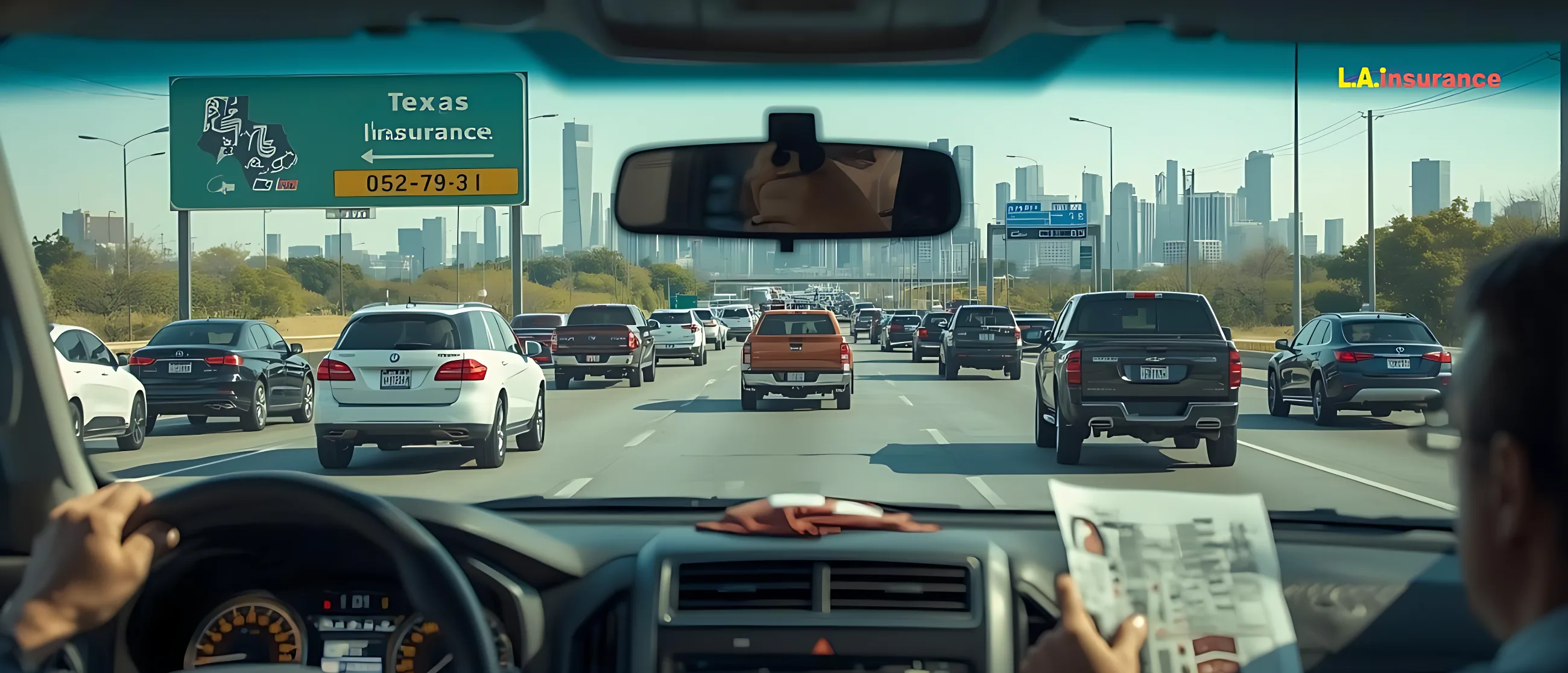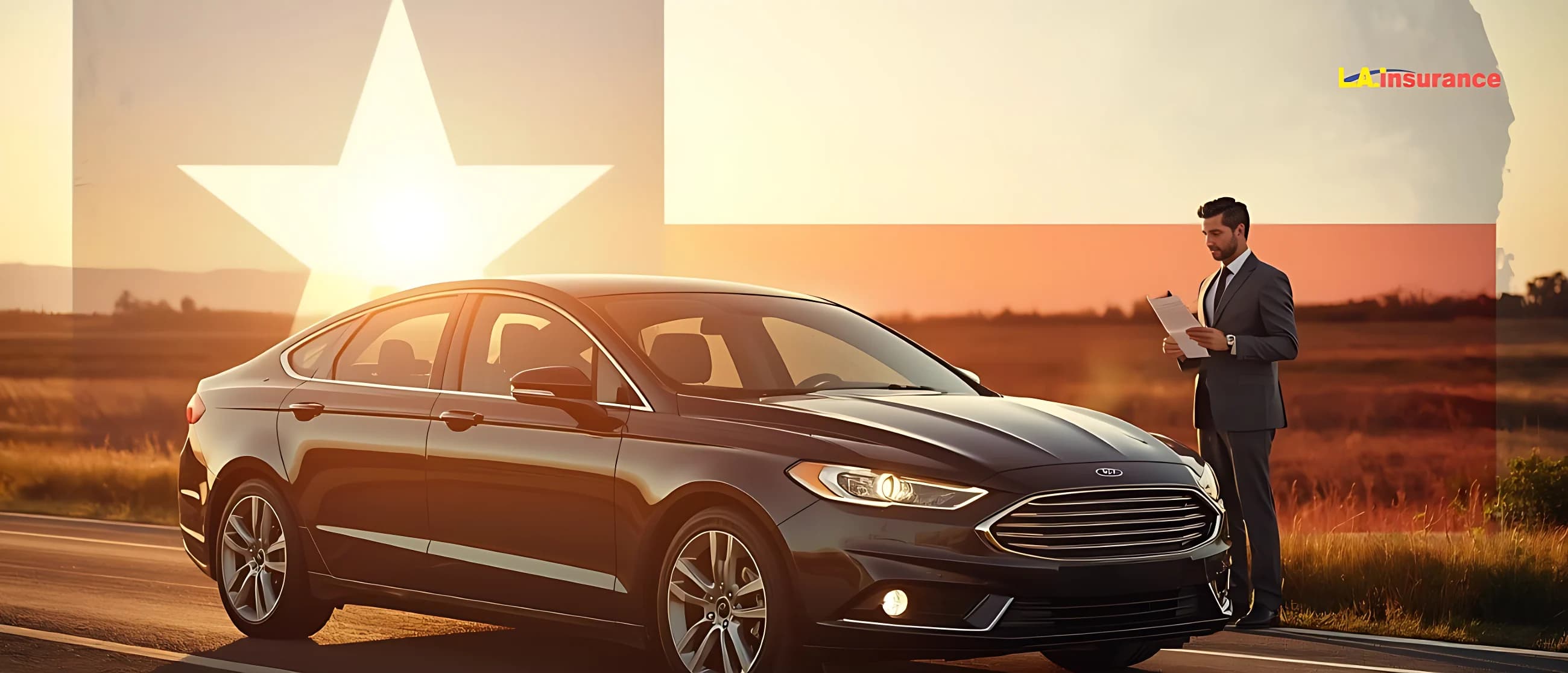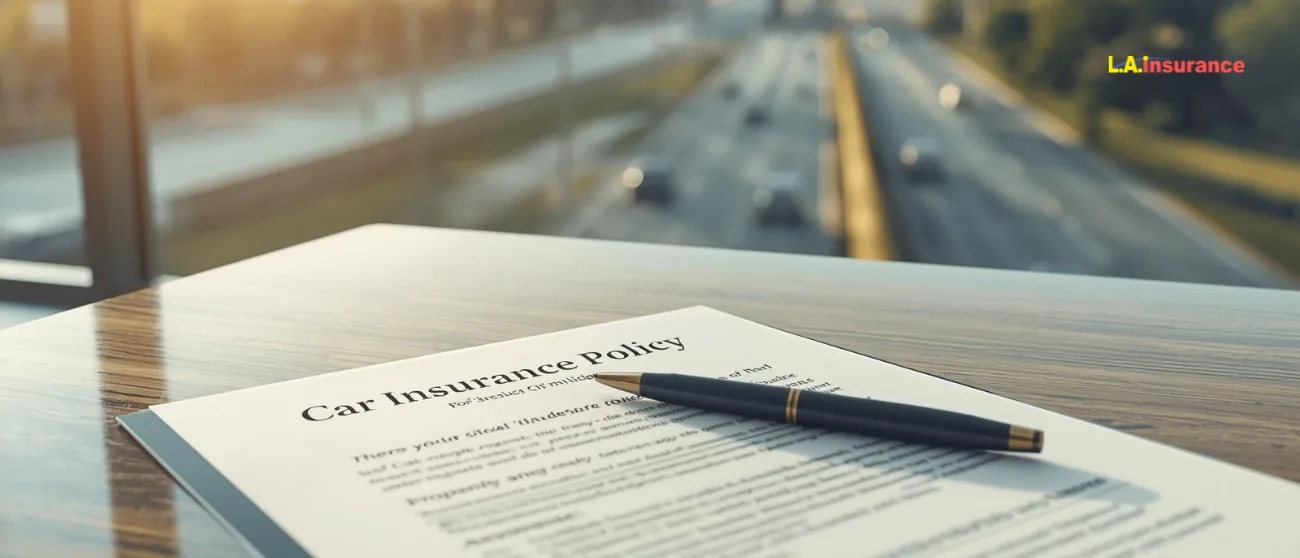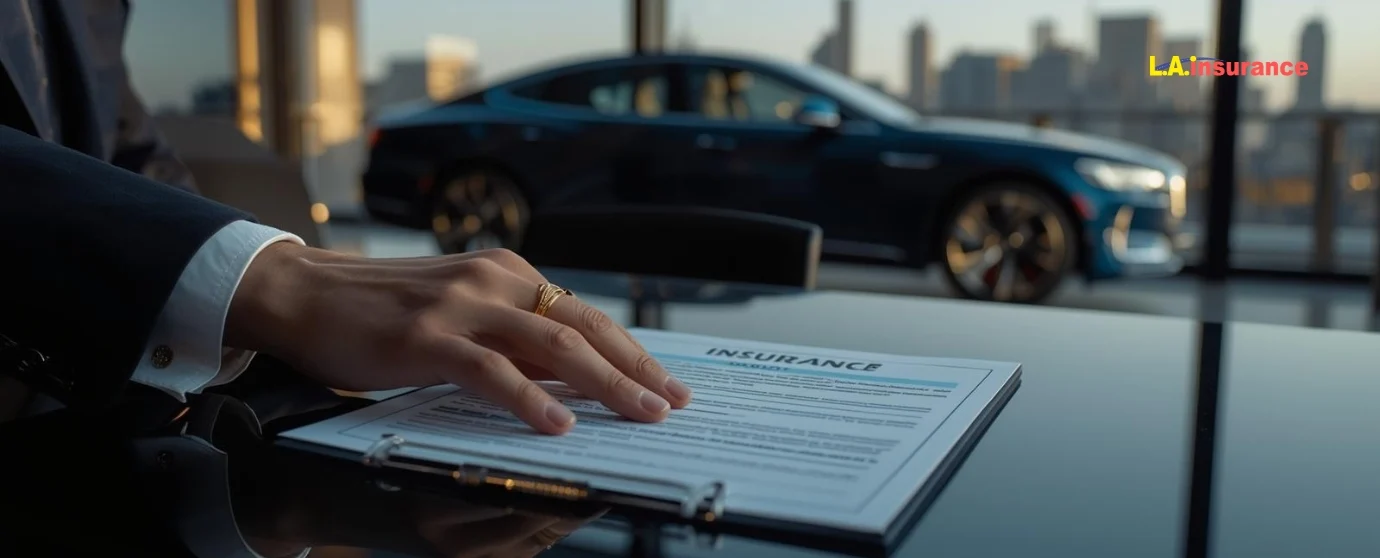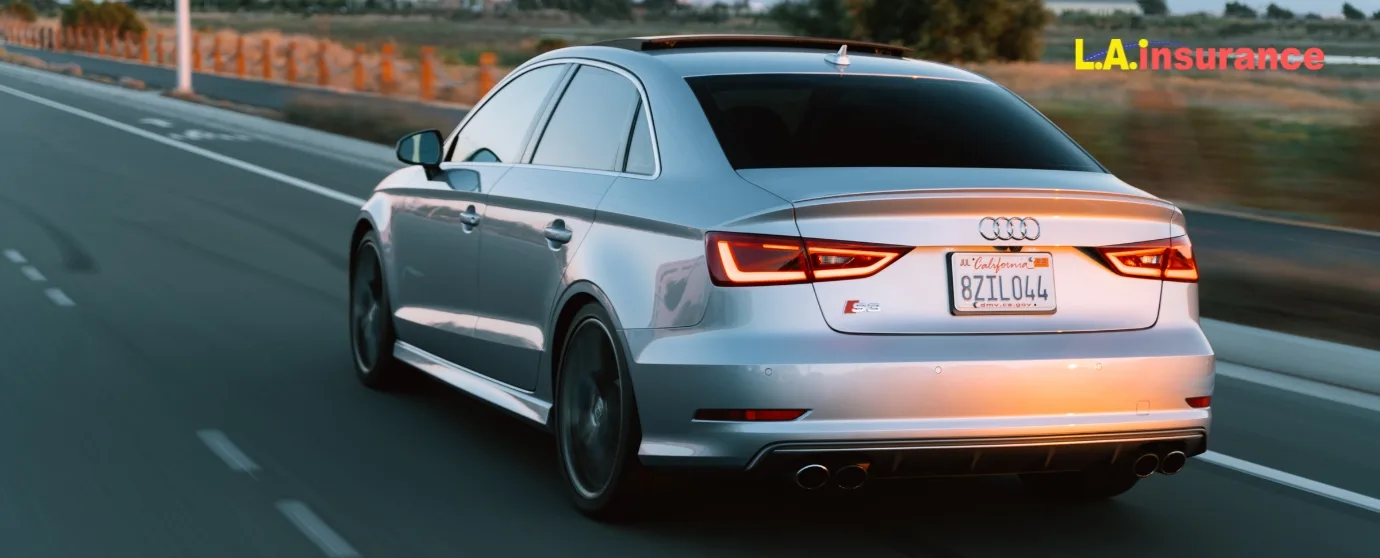
Publish Date: 24-11-2025
Auto Insurance
Last Updated: 16-12-2025
Are Hybrid Cars More Expensive to Insure?
Are hybrid vehicles more expensive to insure? The short answer is yes. On average, insurance companies charge about 5% to 15% more to insure hybrid vehicles compared to regular gas-powered cars. This is primarily because hybrids use advanced technology and tend to cost more to repair or replace. Still, many insurance providers now offer competitive rates for these eco-friendly vehicles, which are definitely worth exploring.
Keep reading as we discuss the key reasons behind higher insurance costs for hybrid cars, and share some useful tips on how you can reduce your premiums.
9 Reasons Why Hybrid Cars Are More Expensive to Insure?
So the big question comes up! Why? Why should you pay a higher insurance premium than a regular gas-powered car owner?
There are countless reasons! Some are more crucial than others. For instance, hybrid cars are more pricier to buy, repair, and maintain. Their advanced electric motor system and specialized repair shops make them costlier to fix after an accident. Plus, insurance companies see them as slightly higher-risk vehicles because of the repair complexities and higher value.
So, here is a list of key factors that make hybrid cars more expensive to insure:
- Higher purchase price and vehicle value
- Expensive repair and replacement costs
- Specialized parts and limited repair shops
- Costly hybrid battery and electric motor system
- Higher risk of theft Increased mileage and driving frequency
- Quieter engine posing pedestrian risks
- Limited claim data for newer models
- Fewer insurance discounts available compared to regular cars
1. Higher Purchase Price and Vehicle Value
A hybrid vehicle usually costs more upfront than a regular car with an internal combustion engine. According to The Zebra, the average cost of a hybrid car is $39,040, and a gasoline car is $33,797. So, the hybrid car costs 15.5% more compared to gasoline vehicles. This higher sticker price means it’s also worth more to insurance companies, which raises the payout if the car is totaled or stolen. The logic is simple here. A more expensive vehicle is equivalent to higher potential claims. Consequently, you face higher premiums. Besides, hybrid vehicles use advanced fuel-efficient technology and premium materials. So, their replacement cost is higher, which also contributes to higher insurance premiums than gas-only models.
2. Expensive Repair and Replacement Costs
Fixing a hybrid car isn’t always cheap. These cars have complex system that combines electric motors with internal combustion engines. So, if something goes wrong, the repair bill climbs quickly. Apart from that, repair shops need certified technicians and special tools, which sometimes increase labor costs. Even minor accidents can require replacing expensive sensors or electrical parts. As a result, some auto insurance providers may charge more to cover the higher cost of repair or replacement. And this makes the hybrid slightly more expensive to insure than standard gas-powered vehicles.
3. Specialized Parts and Repair Shops
Every repair shop might not have the expertise or available parts to handle a hybrid vehicle. Their dual engine systems and electrical wiring need trained mechanics and proper equipment. Because of this, parts and labor are costlier and less widely available. When an accident happens, the insurer has fewer options for affordable repairs, which may drive up car insurance rates. Fewer available service centers also mean longer repair times, and this may add to overall insurance costs for hybrid car insurance.
4. Costly Hybrid Battery and Electric Motor Systems
The heart of every hybrid is its battery pack and electric motor. Replacing or repairing these components can cost thousands of dollars, anywhere from $3,000 to $8,000 in some cases. That’s why insurance companies see hybrids as high-value claims. A damaged battery can even make a car a total loss, and that can certainly lead to higher auto insurance rates. Because these parts require specialized care and safety procedures, they significantly influence the total cost of insurance for hybrid cars.
5. Higher Risk of Theft
Some hybrid models attract thieves due to their valuable components. The batteries and catalytic converters contain precious metals, which make them targets for theft. When theft rises, insurance companies adjust premiums accordingly. Even if your hybrid vehicle is packed with safety features, the high resale value of its parts adds to your insurance costs. Although you can eliminate this factor from influencing your rate by installing reliable anti-theft devices.
6. Increased Mileage and Driving Frequency
Hybrid drivers tend to enjoy better fuel efficiency. So, they often drive more miles. More time on the road increases the chance of an accident, which raises auto insurance costs. Insurers consider driving frequency when calculating car insurance rates, and higher mileage can signal risk. Although hybrids are eco-friendly vehicles, their owners’ longer commutes can translate into slightly higher insurance premiums over time.
7. Quieter Engines Posing Pedestrian Risks
Because hybrids run quietly at low speeds, they can be harder for pedestrians and cyclists to hear. According to NHTSA, hybrid vehicles are nearly twice as likely to hit pedestrians during low-speed maneuvers like slowing down, backing up, or parking. Another study by the Highway Loss Data Institute (HLDI) reports that hybrid vehicles have about 10% more pedestrian-related injury claims than comparable gas-powered cars. That’s why the National Highway Traffic Safety Administration even required electric and hybrid cars to emit artificial sounds to reduce accident risks. These safety concerns contribute to higher liability insurance and auto insurance rates, especially in busy urban areas where pedestrian accidents are more common.
8. Limited Claim Data for Newer Models
Many newer hybrid vehicles have only been on the market for a few years. That means insurance companies have limited data on repair costs, claim frequency, and safety performance. When data is scarce, insurers build in an extra margin for risk, which can push up premiums temporarily. As hybrids become more common and repair shops expand their expertise, these insurance costs are expected to even out.
9. Fewer Discounts Compared to Regular Cars
While some insurers offer green vehicle or eco-friendly discounts, not all do. In some cases, the limited availability of such discounts means hybrid drivers miss out on savings. Traditional vehicles may qualify for more auto bundles, home insurance, or loyalty discounts. However, as demand for electric and hybrid cars grows, more insurers are offering competitive rates and rewards for owning fuel-efficient vehicles.
Average Hybrid Car Insurance Costs
So, how much does it cost to insure a hybrid vehicle? As has been said, on average, it could cost around 5% to 15% extra. The average regular car insurance cost is $2,100 per year ($175 per month) for a full coverage policy. That means if you drive a hybrid car, you can expect to pay from $2,205 to $2,415 per year.
However, this rate may vary depending on factors including:
- Your driving history
- Location (Where you live)
- car’s make and model
- Your Age
- Marital status
- Gender
- Credit score
- Annual mileage
- Coverage limit and claim history
- Choice of deductible
Hybrid Car Insurance Rates by Make and Model
Insurance costs vary from one hybrid car to another. Some models are pricier to purchase, repair, or replace, so their premiums naturally differ. Here are some of the most popular hybrid models and their annual average full-coverage and minimum-coverage insurance:
Hybrid Model (Vehicle Type) | Annual Full Coverage Range |
Toyota RAV4 Hybrid (Compact SUV) | $2,140 to $2,437 |
Honda CR-V Hybrid (Compact SUV) | $2,164 to $2,270 |
Toyota Prius (Hatchback/Sedan) | $2,076 to $2,774 |
Ford Escape Hybrid (Compact SUV) | $2,148 to $2,748 |
Kia Niro Hybrid (Crossover/Wagon) | $2,128 to $2,830 |
Source: MoneyGeek | Forbes Advisor | BankRate | The Zebra [As of November 2025]
Where to Get Hybrid Car Insurance
You can get hybrid car insurance from most major insurance companies, including L.A. Insurance. At L.A Insurance, we offer the cheapest full coverage auto insurance as well as state minimum coverage to help you drive your hybrid vehicles, gasoline-powered vehicles, and electric vehicles legally and securely.
Getting quotes and coverage and simple. Just request a free insurance quote, share your vehicle details, a few personal details, and compare rates online or with an agent. Once you choose your insurance policy, you can easily insure a hybrid vehicle with same-day coverage and instant proof of insurance. Call us at (800) 893-9393 or find an agent near you.
Finding cheap insurance in Michigan is made easy for all hybrid car owners out there! Feel free to contact L.A. Insurance today to discuss your insurance needs.
Tips to Lower Your Hybrid Car Insurance Costs
Hybrid car insurance could be costlier than standard car insurance. But that slightly increased premium could be minimized following a few simple tips.
- Bundle policies. You can combine auto, renters, or home insurance with the same insurance company to get eligible for multi-policy discounts.
- Ask for green vehicle discounts. Some carriers offer it for eco-friendly vehicles like hybrids.
- Reduce annual mileage if possible to qualify for low-mileage discounts.
- Increase your auto insurance deductible to lower your monthly premium.
- Install anti-theft devices like alarms or trackers to reduce theft risk and unlock discounts.
- Use telematics or safe-driver programs/defensive driving courses. Share driving data to prove safe habits.
- Choose the hybrid models cheaper to insure, like Kia Niro Hybrid or Toyota RAV4.
To learn more, read our in-depth article on how to lower your car insurance rate!
Are Hybrid Cars Costly to Insure: The Bottom Line
To recap, yes, hybrid car insurance sometimes costs slightly more than insurance for gas-powered cars. But that doesn’t mean it’s forever! You can easily lower costs by practicing safe driving and maintaining a clean driving record. You can also raise your deductible and take a defensive driving course to reduce your current premium.
Nowadays, hybrid vehicles are in high demand and for good reason. They’re fuel-efficient, eco-friendly options. As more consumers lean toward hybrid cars, parts availability and specialized repair shops have become more prevalent, which is helping to shrink the insurance cost difference.
Frequently Asked Questions (FAQs)
What type of coverage do I need for hybrid cars?
You’ll need the same basics as any mandatory auto liability insurance, personal injury protection, or uninsured/underinsured motorists coverage, depending on your minimum state requirement. And if your vehicle is financed or you need extra protection, you can get collision and comprehensive coverage (AKA full coverage car insurance). Since hybrids use costly electric motor systems, it’s smart to add mechanical breakdown insurance or roadside assistance for extra protection.
What discounts can I get for hybrid vehicles?
Many insurance companies offer green vehicle or eco-friendly discounts, often between 5% and 10%. You can also qualify for safe driver, multi-policy, low mileage, and good student discounts. Ask your insurer which applies to your hybrid vehicle, as some vary by state and provider.
How much do drivers pay to insure some popular hybrid vehicles?
On average, most hybrid cars cost between $2,140 and $2,830 per year for full coverage. Models like the Kia Niro Hybrid and Toyota RAV4 Hybrid are among the most affordable, often costing below $2,200 a year. However, premium models like the Lexus RX Hybrid can cost closer to $2,800 or more, depending on location and driving record.
Which hybrid car is the cheapest to insure?
The Kia Niro Hybrid consistently ranks as one of the cheapest to insure, averaging around $2,100 per year. Other budget-friendly picks include the Toyota Corolla Hybrid, Honda CR-V Hybrid, and Ford Escape Hybrid, all known for solid safety features and low repair costs. And therefore, quite affordable to insure.
Are hybrid cars more expensive to insure than electric cars?
No, not usually. While both use advanced technology, electric vehicles (EVs) tend to have higher purchase and repair costs. That’s why their insurance premiums are about 20% higher on average. Hybrid car insurance sits in the middle, slightly higher than gas cars but lower than full EVs.
How much does it cost to insure a hybrid car in Michigan?
Michigan’s auto insurance rates are among the highest in the U.S. On average, hybrid vehicles cost around $2,800 to $3,000 per year for full coverage here. Rates vary based on city, age, driving record, and coverage type, but choosing higher deductibles and safe-driver discounts can help cut costs. To understand the full picture, you can learn more about why Michigan auto insurance is so expensive?
Are hybrid cars safer or riskier to drive?
Hybrid vehicles are generally safe. Most come with advanced safety features like collision detection and lane assist. However, their quiet operation at low speeds can increase risks for pedestrians, which is why new models must emit warning sounds as per the NHTSA rule. Overall, they perform as well or better than gas cars in crash tests.
Editorial Disclaimer
The information provided on this blog is for general informational purposes only and does not constitute professional insurance, legal, or financial advice. Coverage and rates are subject to individual eligibility, underwriting guidelines, and state availability. For specific questions regarding your policy or to get an accurate quote, please contact a licensed L.A. Insurance agent directly. We're an independent agency and not a direct insurance carrier. For more information on how we operate and handle your data, please see our Terms and Conditions and Privacy Policy.
Tag :
Auto insurance
cheap car insurance
fast car insurance
